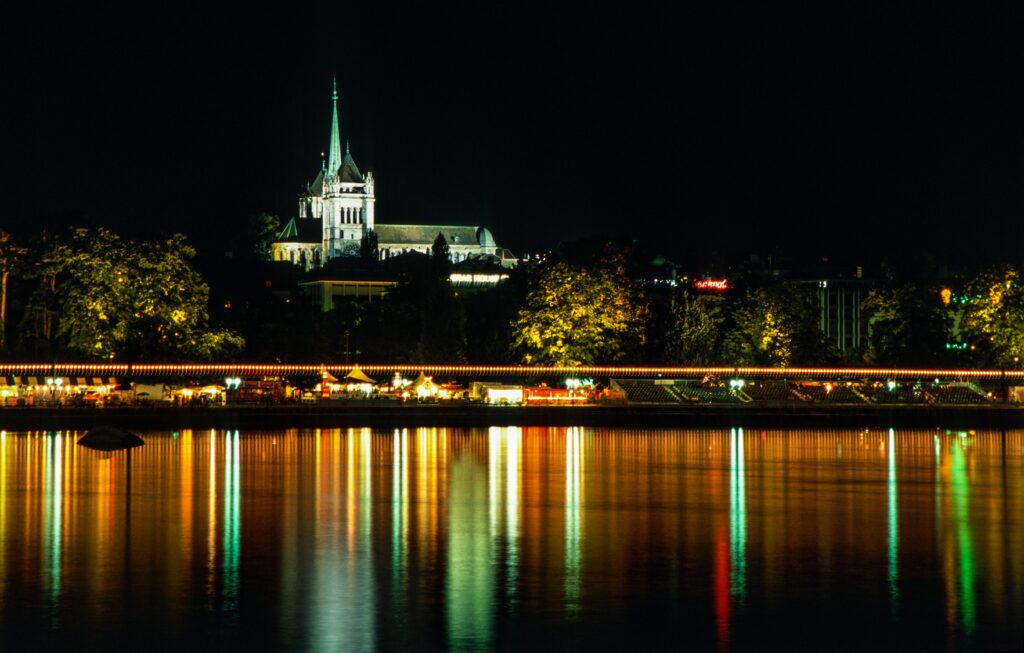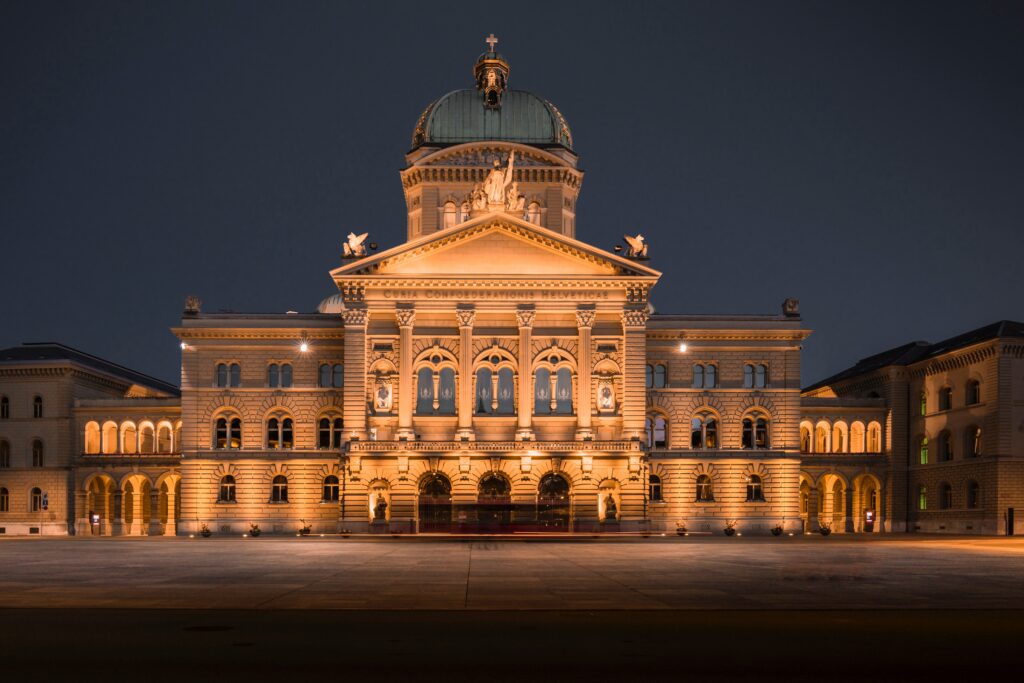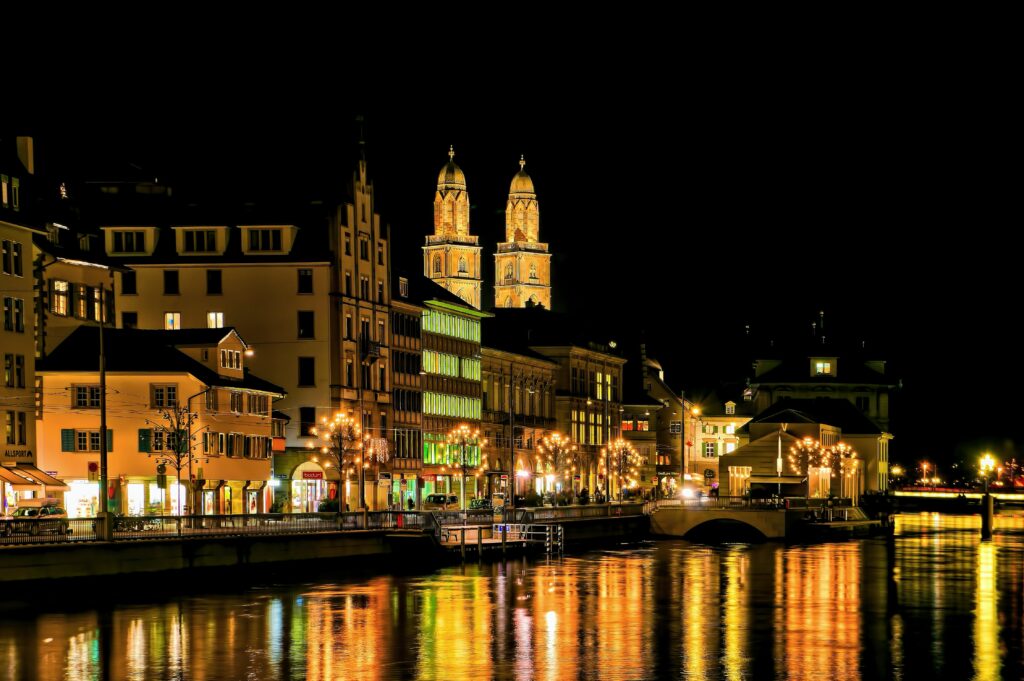lun, Sep 5th 2022

Geneva’s iconic Saint Pièrre Cathedral has now gone dark at night to save precious energy.
Patrons of the hip bars lining Geneva’s Rue du Lac paused in conversation Friday night as bright storefronts flickered off at 9 p.m., rippling like dominoes and leaving the street eerily dark. The darkening of Swiss streets signals the launch of a nationwide campaign to conserve energy with the hope that the country can avoid forced, rolling blackouts over the winter.
Switzerland’s federal government last week launched the campaign under the direction of energy minister Simonetta Sommaruga. Although Sommaruga stressed that Switzerland is not experiencing any shortage of energy right now, reducing consumption in the present could prevent the country from plunging into a cold, dark winter.

Switzerland’s Parliament could backtrack a decision to move away from nuclear power should the issue be overturned in a voter referendum.
Switzerland’s looming energy crisis
Switzerland produces more energy than its population can consume most of the year; but, relies on imports from neighboring countries through the winter. A Europe-wide energy shortage — which was born out of a reliance on Russian natural gas and compounded by countries moving away from nuclear power — is expected to begin affecting Switzerland in October. Heating alone accounts for more than 75 percent of the energy consumed in Switzerland during winter.
The bulk of the government’s new plan will rely on businesses turning the lights off and other energy reduction efforts. But, the government is also asking residents to pitch in by:
-Reducing heat. Residents should not turn their thermostats above 20 degrees Celsius. For every degree they reduce their heat below that, about 10% of energy consumption is slashed.
-Turn laptops, mobile phones and other appliances off completely. Leaving fully charged appliances and technology on standby consumes needless energy.
-Turn off lights. Leaving lights on in unoccupied rooms is a waste of energy.
-Keep lids on pots. A lot of energy evaporates into the air when lids are left off pots and pans while cooking. Keep lids on and food will cook faster.
-Showers over baths. Take short showers at no hotter than 37 degrees.

Swiss residents will need to make a concerted effort at home to save energy, the government says.
Two Switzerlands
In a best-case scenario, the plan will reduce energy consumption by 15 percent from now through the end of March 2023.
In a worst-case scenario, the plan will fail to meet certain thresholds and Switzerland may resort to using rolling, regional blackouts. In August, the federal government announced that residents should “prepare for blackouts” by stockpiling candles, firewood, food and gas cookers.
While inconvenient for residents, rolling blackouts could also prove to be a security issue, according to St. Gallen Police Chief Fredy Fässler.
“Imagine, you can no longer withdraw money at the ATM, you can no longer pay with the card in the store or refuel your tank at the gas station. Heating stops working. It’s cold. Streets go dark. It is conceivable that the population would rebel or that there would be looting,” said Fässler. (Read more on Fässler’s concerns).

The electricity the Kernkraftwerk plant in Leibstadt generates makes a substantial contribution towards Switzerland’s energy supply.
The nuclear option
A group of Swiss politicians, called ‘Stop Blackouts,’ says that a lot of turmoil could be avoided if the government would quash a 2017 decision to close all five of its nuclear reactors. The 2017 decision to move away from nuclear energy was driven by safety concerns following the 2011 nuclear disaster in Fukushima, Japan. One reactor has already been shut down.
The group, launched last week, will petition the government to overturn this decision and change the Swiss constitution so that the federal government would be officially responsible for ensuring the country’s energy supply through “any form of climate-friendly electricity generation.”
“Until recently, Switzerland had safe and virtually CO₂-free electricity production: the environmentally and climate-friendly combination of hydro and nuclear power is to be abandoned for no reason at all,” reads the Stop Blackouts website.
Stop Blackouts is aiming to collect 100,000 signatures from Swiss supporters, so that they will be able to get the issue on a voter referendum, under Switzerland’s direct democracy law. Even if the voter referendum is passed in a popular vote, it could take months, or even years, for the government to implement the plan.
Stay tuned
Meanwhile, an organization representing the interests of 100,000 Swiss businesses – called Economiesuisse – says the government-ordered conservation efforts could cost the Swiss economy 100 billion Swiss francs.
Supporters of the conservation efforts say businesses should back the plan as belt-tightening in the short-term will save money in the long-term.
Cet article peut être librement partagé et réimprimé, à condition qu'il renvoie clairement à l'article original.
